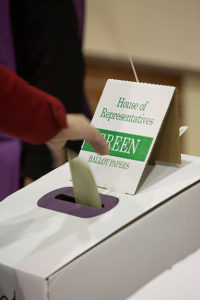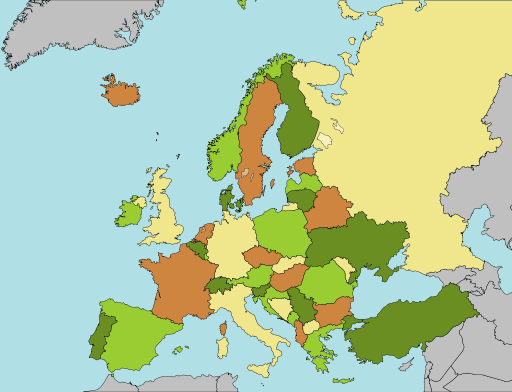Articles
Google Releases Political Ad Database and Trump Is the Big Winner | Gizmodo
From the horse’s mouth
Introducing A New Transparency Report For Political Ads (Blog Post)
Transparency Report – Political Advertising On Google (Currently relevant to federal elections in the USA)
Advertising Policies Help Page – Political Advertising (Key details apply to USA Federal elections only)
My Comments
If you use YouTube as a free user or surf around the Internet to most ad-facilitated blogs and Websites like this one, you will find that the display ads hosted are provided by an ad network owned or managed by Google. Similarly, some free ad-funded mobile apps may be showing ads that are facilitated through Google’s ad networks. Similarly, some advertisers pay to have links to their online resources placed at the top of the Google search-results list.

Google to keep records of political ads that appear on these sites so they have the same kind of respect as traditional print ads
Over the past few years, there has been a strong conversation regarding the authenticity of political advertising on the online space thanks to the recent election-meddling and fake news scandals. This concern has been shown due to the fact that the online space easily transcends jurisdictional borders and isn’t as regulated as traditional broadcast, print and away-from-home advertising especially when it comes to political advertising.
Then there is also the fact that relatively-open publishing platforms can be used to present content of propaganda value as editorial-grade content. The discovery of this content can be facilitated through search engines and the Social Web whereupon the content can even be shared further.
Recently Facebook have taken action to require authentication of people and other entities behind ads hosted on their platforms and Pages or Public Profiles with high follower counts. This ins in conjunction to providing end-users access to archival information about ad campaigns ran on that platform. This is part of increased efforts by them and Google to gain control of political ads appearing on their platforms.
But Google have taken things further by requiring authentication and proof of legitimate residency in the USA for entities publishing political ads through Google-managed ad platforms that targeting American voters on a federal level. As well, they are keeping archival information about the political ads including the ads’ creatives, who sponsored the ad and how much is spent with Google on the campaign. They are even making available software “hooks” to this data for researchers, concerned citizens, political watchdog groups and the like to draw this data in to their IT systems for further research.
If you view a political ad in the USA on this site or other sites that use display advertising facilitated by Google, you will find out who is behind that ad if you click or tap on the blue arrow at the top right hand corner of that ad. Then you will see the disclosure details under the “Why This Ad” heading. Those of you who use YouTube can bring up this same information if you click or tap on the “i” (information) or three-dot icon while the ad is playing.
Google are intending to roll these requirements out for state-level and local-level campaigns within the USA as well as rolling out similar requirements with other countries and their sub-national jurisdictions. They also want to extend this vendor-based oversight towards issues-based political advertising which, in a lot of cases, makes up the bulk of that kind of advertising.
Personally I would also like to see Google and others who manage online ad platforms be able to “keep in the loop” with election-oversight authorities like the USA’s Federal Election Commission or the Australian Electoral Commission. Here, it can be used to identify inordinate political-donation and campaign-spending activity that political parties and others are engaging in.




